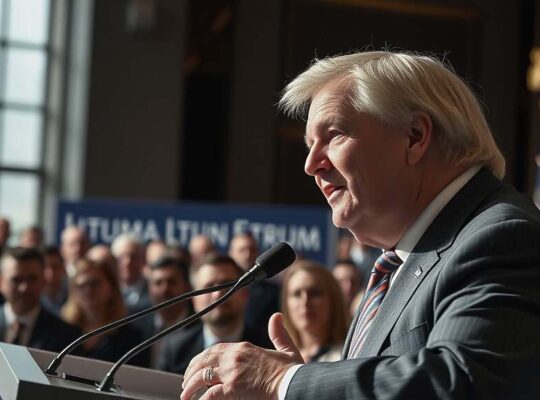A simmering dispute within the German government is threatening to derail the rollout of the controversial “active pensioner” scheme, designed to incentivize older workers to remain in the workforce. The disagreement, escalating between Finance Minister Lars Klingbeil (SPD) and Chancellor Friedrich Merz (CDU), centers on the tax implications for those participating in the program, placing a significant obstacle to its planned implementation.
According to sources within government circles, Klingbeil insists that earnings up to the capped amount of €2,000 per month – intended to be tax-free to encourage participation – should still be subject to a “progression reserve”. This technicality means that if a pensioner’s total income, including their pension and the additional earnings, exceeds certain thresholds, they would be liable for taxes in the following year. This effectively undermines the tax-free incentive that proponents touted as crucial for the program’s success.
Chancellor Merz, representing the opposition CDU, strongly opposes this progressivity clause, arguing it would negate the program’s intended purpose and disincentivize older workers. He is demanding a complete exemption from taxation for these additional earnings. The clash in viewpoints has forced the postponement of the planned cabinet approval, originally scheduled for this Wednesday, jeopardizing the timeline for the scheme’s introduction.
Instead, the coalition committee will reconvene Wednesday evening, with Klingbeil and Merz expected to seek a compromise. This impasse highlights a deeper ideological divergence within the ruling coalition regarding the role of the state in incentivizing continued employment beyond traditional retirement age. Critics argue the active pensioner scheme, even as initially conceived, was a patchwork solution attempting to address workforce shortages without tackling underlying issues in pension sustainability and ageism and the tax dispute further exposes the fragility of the political consensus around its design. The outcome of Wednesday’s discussions will be closely watched as it signals the direction of German social and economic policy towards an aging workforce.












